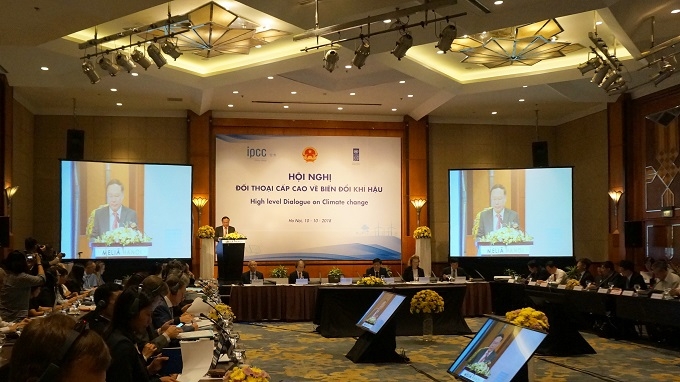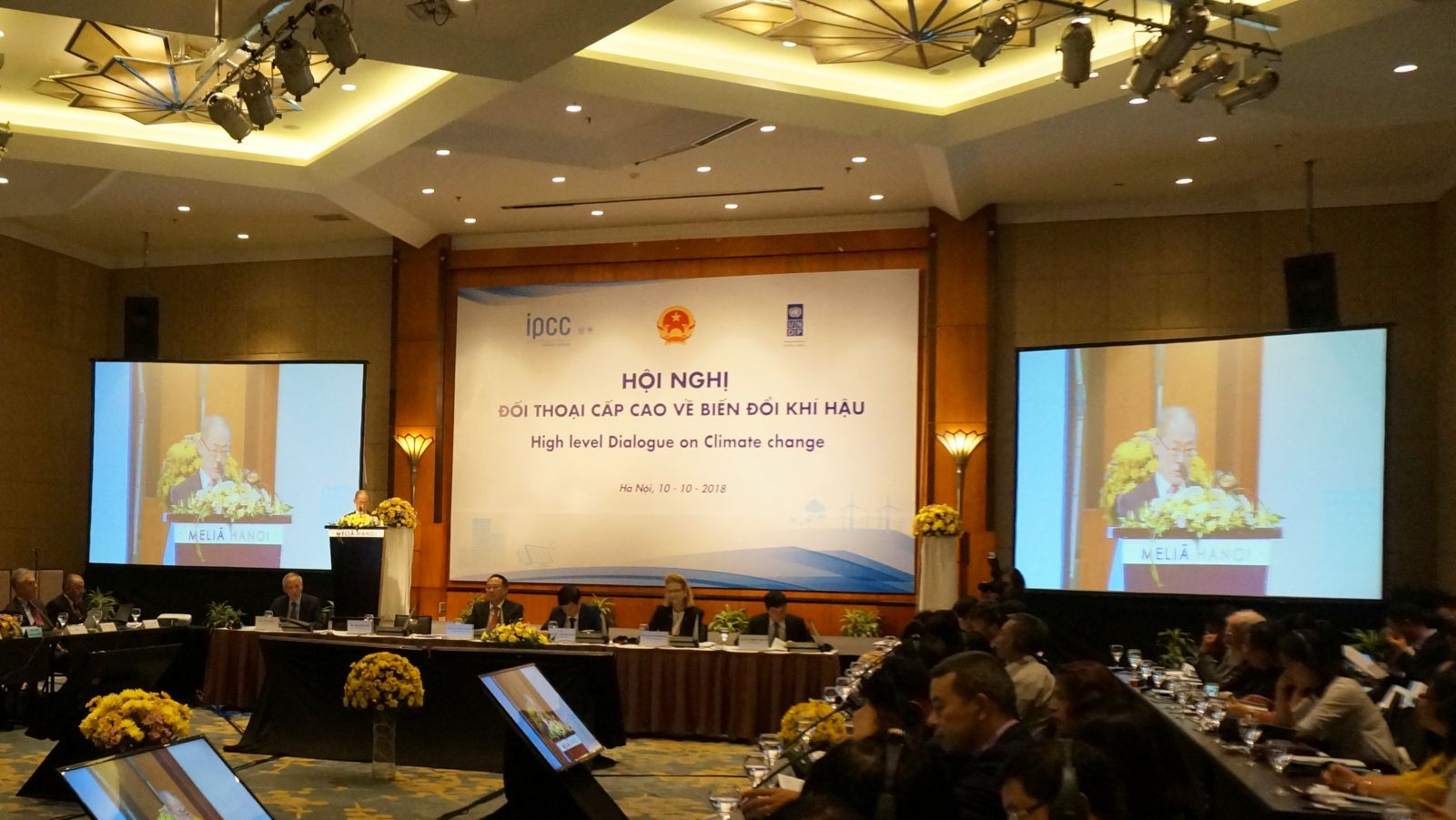
MONRE Deputy Minister Le Cong Thanh speaks at the dialogue. (Photo: NDO/Van Toan)
The official made the remarks at a high-level dialogue on climate change, co-organised by the Ministry of Natural Resources and Environment (MONRE), the United Nations Development Programme (UNDP) and the Intergovernmental Panel on Climate Change (IPCC), in Hanoi, on October 10.
Together with the ratification of the Paris Climate Change Agreement, Vietnam has issued a plan for the implementation of the document, with a focus on implementing its Nationally Determined Contributions (NDC), Thanh said.
He added that the dialogue would focus on discussing issues related to the response actions to climate change in Vietnam, while promoting cooperation and connection with development partners, the scientific community, enterprises, organisations and individuals for the cause of responding to climate change.
At the dialogue, information on the newly approved Special Report of the IPCC on the impacts of global warming of 1.5ºC and issues related to global greenhouse gas emissions were also shared.
The IPCC is the global body for assessing the science related to climate change. In December 2015, when governments adopted the Paris Agreement, they invited the IPCC to prepare a report on the warming of 1.5ºC in 2018, when nations review the Paris Agreement at the 24th Conference of the Parties to the UN Framework Convention on Climate Change (COP24), to be held in Poland this December.

IPCC Chair Prof. Hoesung Lee speaks at the dialogue. (Photo: NDO/Van Toan)
“Limiting global warming to 1.5ºC would require rapid, far-reaching and unprecedented changes in all aspects of society,” said IPCC Chair, Prof. Hoesung Lee. “With clear benefits to people and natural ecosystems, limiting global warming to 1.5ºC compared to 2ºC could go hand in hand with ensuring a more sustainable and equitable society,” he added.
According to the report, limiting global warming to 1.5ºC compared with 2ºC would reduce the impacts on ecosystems, and human health and well-being, making it easier to achieve the UN Sustainable Development Goals.
“The IPCC report highlights the severe climate change impacts that could be avoided by limiting global warming to 1.5ºC, but the time to act is rapidly closing,” said Ms. Caitlin Wiesen, UNDP Country Director. “Climate reform is needed as fundamentally as the economic renewal that Vietnam adopted 40 years ago to bring about rapid reduction in greenhouse gas emissions and boost green jobs for a more resilient sustainable society,” she added.
The report highlights a number of climate change impacts that could be avoided by limiting global warming to 1.5ºC compared to 2ºC, or more. For instance, by 2100, the global sea level rise would be 10cm lower with global warming of 1.5ºC compared with 2ºC. The likelihood of an Arctic Ocean free of sea ice in summer would be once per century with global warming of 1.5oC compared with at least once per decade with 2ºC. Coral reefs would decline by 70-90% with global warming of 1.5ºC, whereas virtually all (>99%) would be lost with a 2ºC increase.
“One of the key messages that comes out very strongly from this report is that we are already seeing the consequences of 1ºC global warming through more extreme weather and rising sea levels among other changes,” said Panmao Zhai, Co-chair of IPCC Working Group I. “At the current rate of warming, the world is likely to reach 1.5ºC between 2030 and 2052”, he added.
On the same day, a scientific workshop on climate resilience and low-carbon development, and a talk with students on climate change, were also hosted in Hanoi./.
NDO
 Da Nang invests over 200 billion VND in semiconductor chip design, AI development
Da Nang invests over 200 billion VND in semiconductor chip design, AI development




